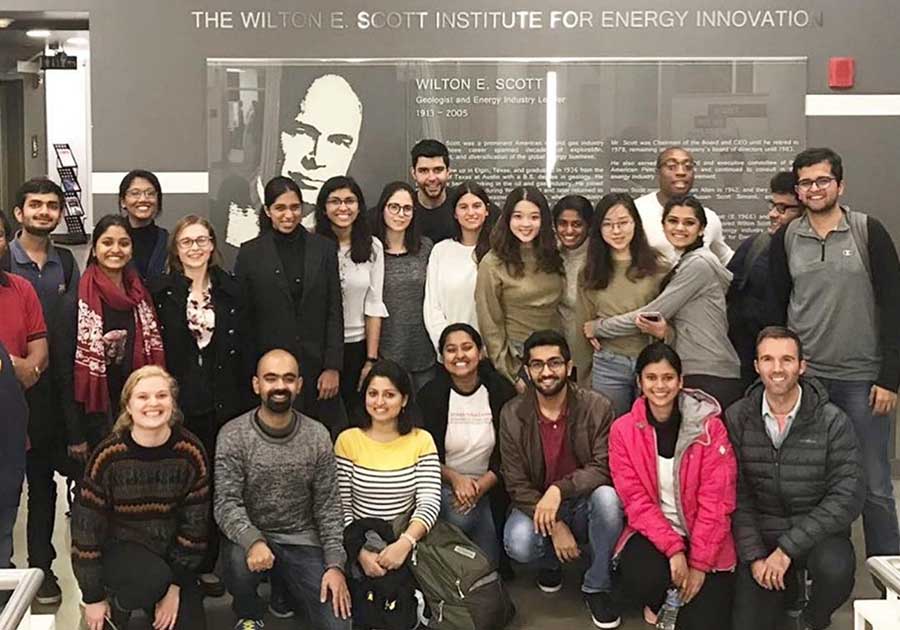Beneath the Surface: Ritu Treisa Philip's Wavy New World

Growing up in Chennai, India, Ritu Treisa Philip saw frequent, long power outages.
“That’s what got me interested in renewable energy,” said Philip, who is now a research engineer at the National Renewable Energy Laboratory (NREL). “Clean energy,” she said, “can help undo some of the consequences of our overexploitation of nonrenewable resources,” like, for example, unreliable power grids and the legion of environmental problems—from floods to wildfires and violent cyclones—that come with a warming world.

It is no surprise, then, that Philip chose a career where she could help bring more renewable energy—specifically marine energy—onto the grid. After earning a bachelor’s degree in chemical engineering from Anna University in India and a master’s degree in energy science technology and policy at Carnegie Mellon University in Pittsburgh, Pennsylvania, Philip eventually ended up at NREL. In the lab, she develops cost models to analyze the economic feasibility of nascent marine energy devices, which harness energy from ocean and river currents, tides, and waves. Outside work, Philip harnesses a different kind of wave—sound waves—as both a singer and a music teacher.
Though Philip had her pick of clean energy careers—from building renewable energy machines to writing energy policy—at Carnegie Mellon and later as an Oak Ridge Institute for Science and Education Fellow at the Oak Ridge National Laboratory, she gravitated toward something called techno-economic analysis. Techno-economic analysis is used to evaluate all kinds of products and manufacturing processes to, in short, make sure their benefits are worth their costs.
During her fellowship, Philip helped design more efficient and cost-effective manufacturing processes. Now, at NREL, Philip focuses her energy—and expert analyses—on marine energy technologies, which could provide renewable, reliable, and locally sourced power to coastal communities (like Philip’s hometown of Chennai). Before these devices head into waters around the world, Philip is making sure they are cost-effective enough to achieve commercial success. (Recently, for example, she analyzed the cost and performance efficiency of a tidal energy farm).

“My mission is to bridge the gap between the technical and economic benefits offered by the many novel renewable energy technologies out there,” Philip said. Finding a home in water power, specifically, was “a wonderful bonus,” she said. “It’s an opportunity to address many of the current data gaps right now.” More comprehensive data on device performance, ocean and river energy resources, and long-term costs of marine energy technologies could help accelerate the industry’s progress, so this renewable newcomer can soon power grids and coastal communities worldwide.
Meanwhile, Philip is bringing a different kind of energy to the world: music. She plays the keyboard and sings; during her undergraduate years, she was part of a band called Effervescence and directed and acted in an Indian adaptation of Jane Austen’s "Pride and Prejudice." And in 2016–2017, Philip joined the Teach for India program, through which she taught music to children in rural areas in Chetpet, Chennai, in India. Today, she still sings with her church choir.
Philip might love her South Indian culture, but she is keen on NREL’s, too. The laboratory’s experienced research teams, she said, are helping boost her clean energy career. And, she said, “another thing I absolutely love is that NREL promotes collaborative, interdisciplinary research. My water power mentor, manager, and peers have really supported my journey by providing me with a conducive, nurturing environment to grow professionally.”
Plus, she added, “nothing can beat an occasional glimpse of the Flatirons from our office space!”
Learn more about how NREL’s experts are helping advance marine energy. And subscribe to the NREL water power newsletter, The Current, for the latest news on NREL's water power research.
Last Updated May 28, 2025
